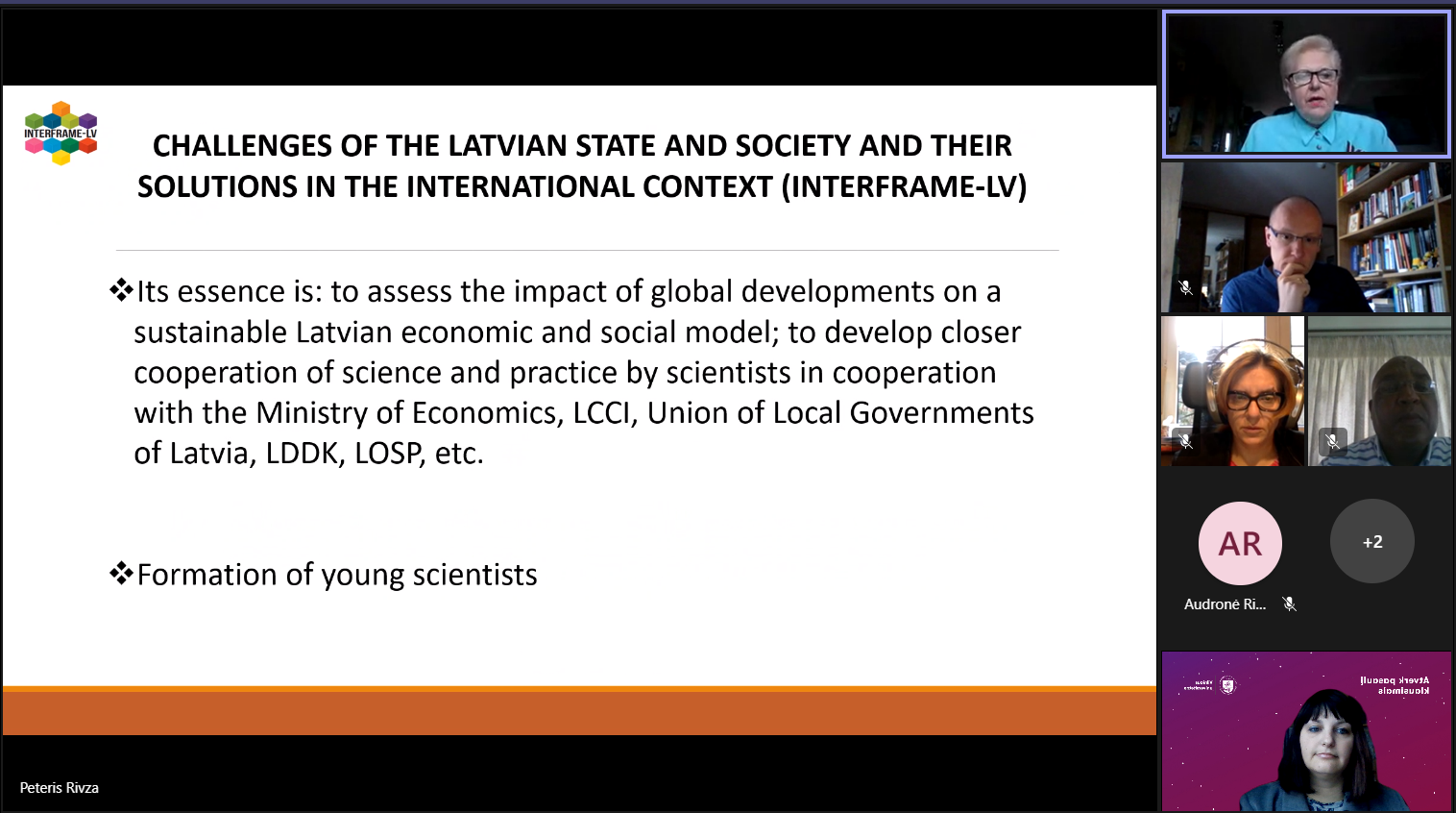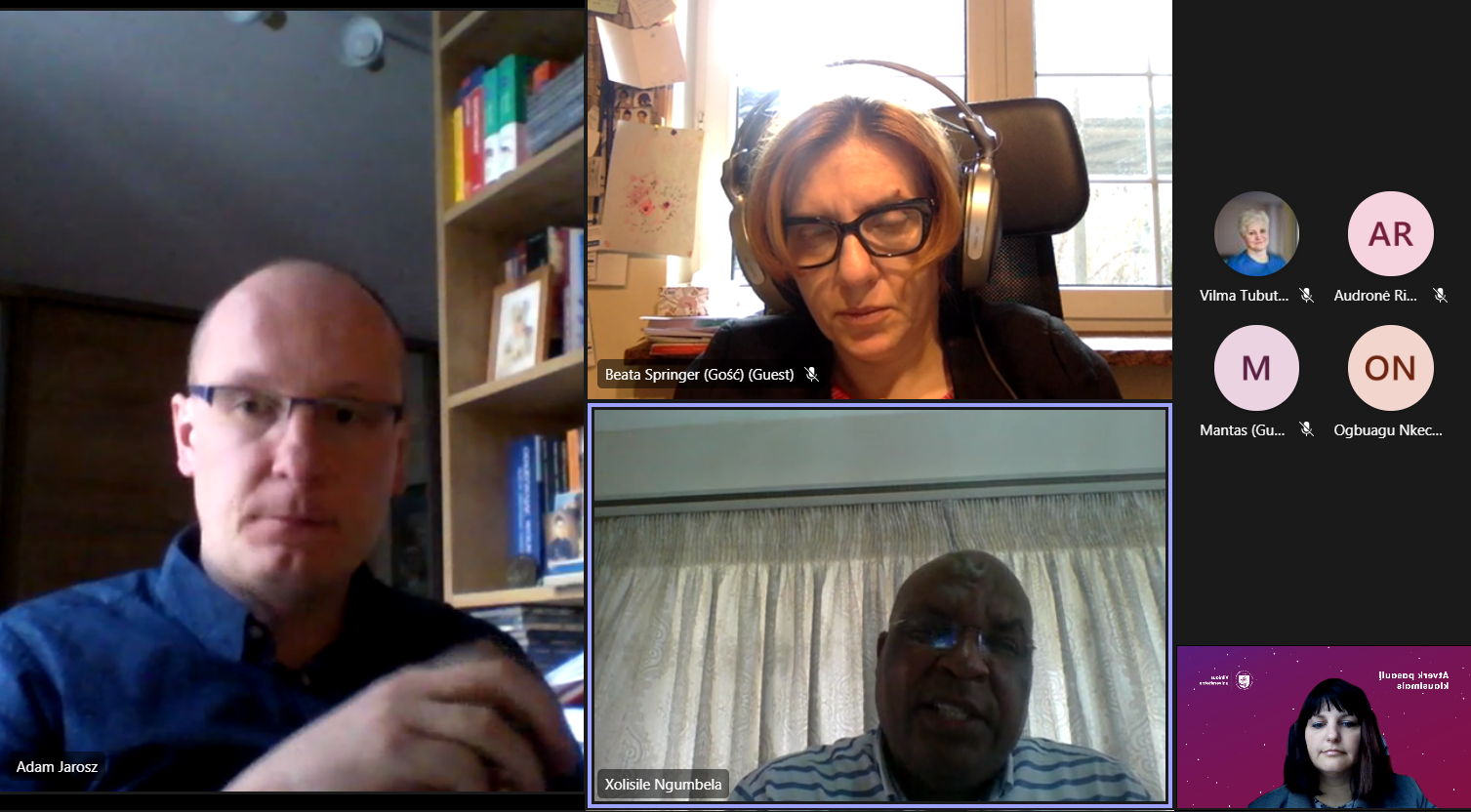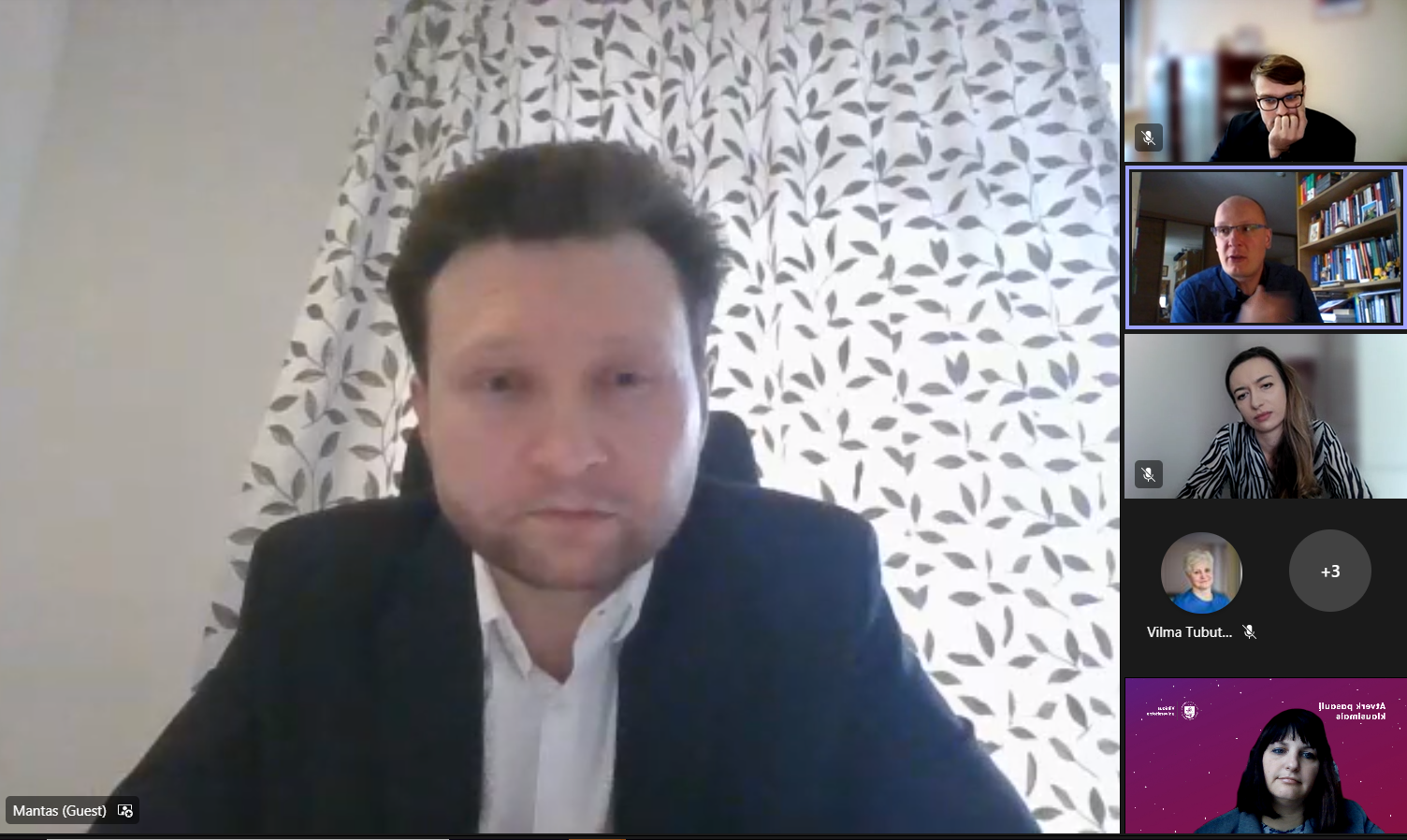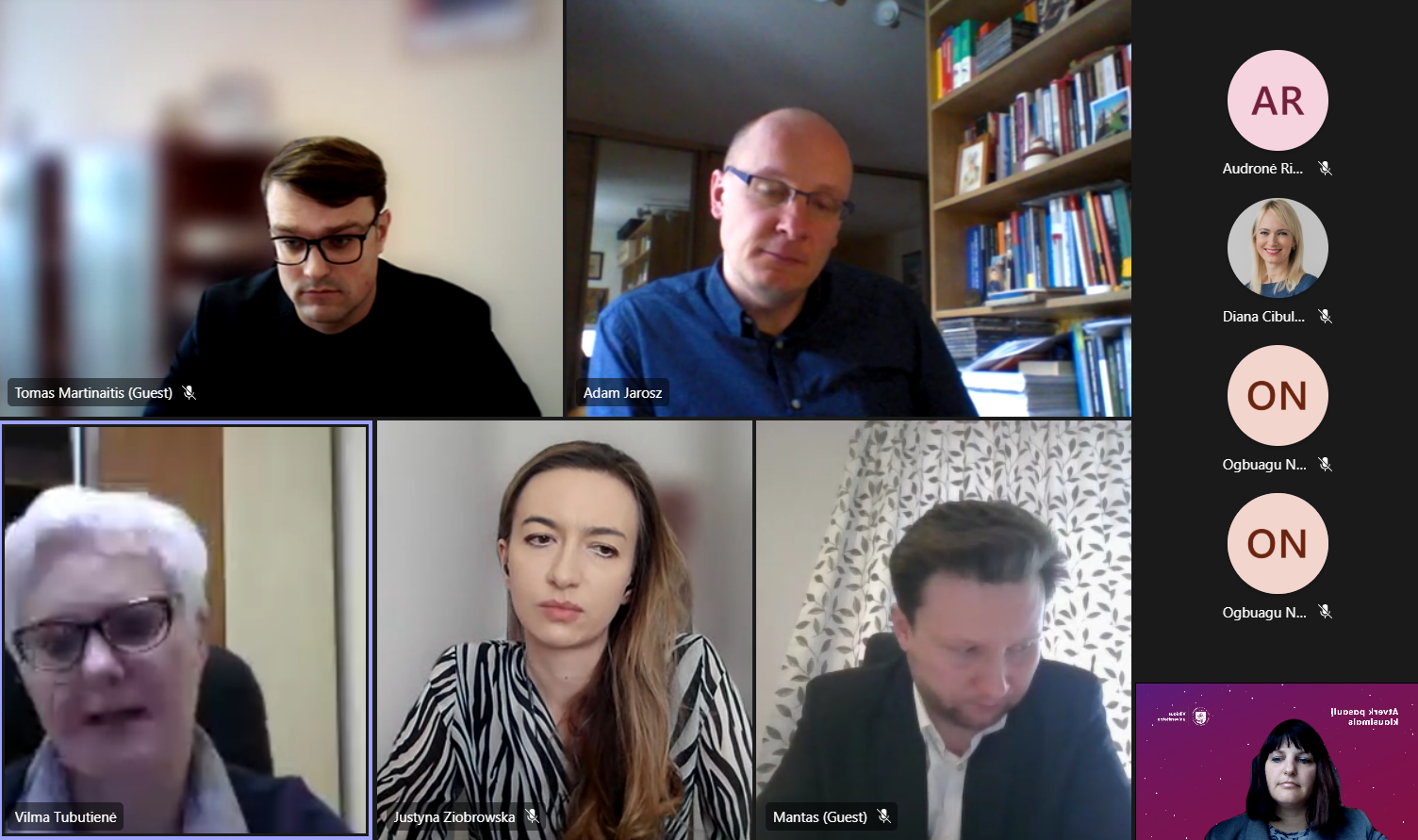2021
On the 13th of April Researchers' Excellence Network (RENET) invited to take the part virtually in the seminar-discussion: "How innovations are important for regional development?". Moderator - assoc. prof. Dr Vita Juknevičienė (RENET, Šiauliai Academy of Vilnius University, Lithuania). Three main presentations were provided:
"Innovative
tools for measurement of regional
economic development progression" by prof. Dr Daniel Meyer and assoc. prof. Dr Natanya Meyer (University of Johannesburg, South Africa). Economic development and
the measurement of progress over time is important to determine successful
implementation of policies and strategies. A gap in the measurement of economic
development exists especially on a regional level and the use of HDI and GDP
per capita as tools are not effective. Over the last 5 years a number of
innovative regional development measurement tools were development including
the Multi-dimensional Regional Economic Development Index (MREDI). The tools
could be used in both leading and lagging regions and assists with policy and
strategy formulation. Presenters gave main information about measurement tools and provided recommendations on the implementation of those tools in practice.
"Innovation profiles of Bulgarian regions – positioning and perspectives" by assoc. prof. Dr Daniela Georgieva and prof. Dr Teodora Georgieva (International Business School – Botevgrad, Bulgaria). The presentation described the Bulgarian regions' profiles based on indicators for research, innovation, and economic activity. A comparative analysis was made following the methodology of the Regional innovation scoreboard. Besides, some good regional practices were presented within the context of the Smart Specialization Strategy.
"The potential of the Lithuanian municipalities in creating a Smart Social System" by Vilnius University Šiauliai Academy alumni, Deputy Mayor Tomas Martinaitis (Šiauliai Academy of Vilnius University, Akmenė district municipality, Lithuania). The presentation focused on issues how the municipal potential in the creation of a smart social system could be measured. Presenter justified the model of the municipality as a smart social system. Then he presented the fields and dimensions of model and how the expression of potential of the Lithuanian municipalities were evaluated. Finally, few examples of good practice from Lithuanian municipalities were provided.
The discussion involved presenters as well as international participants.
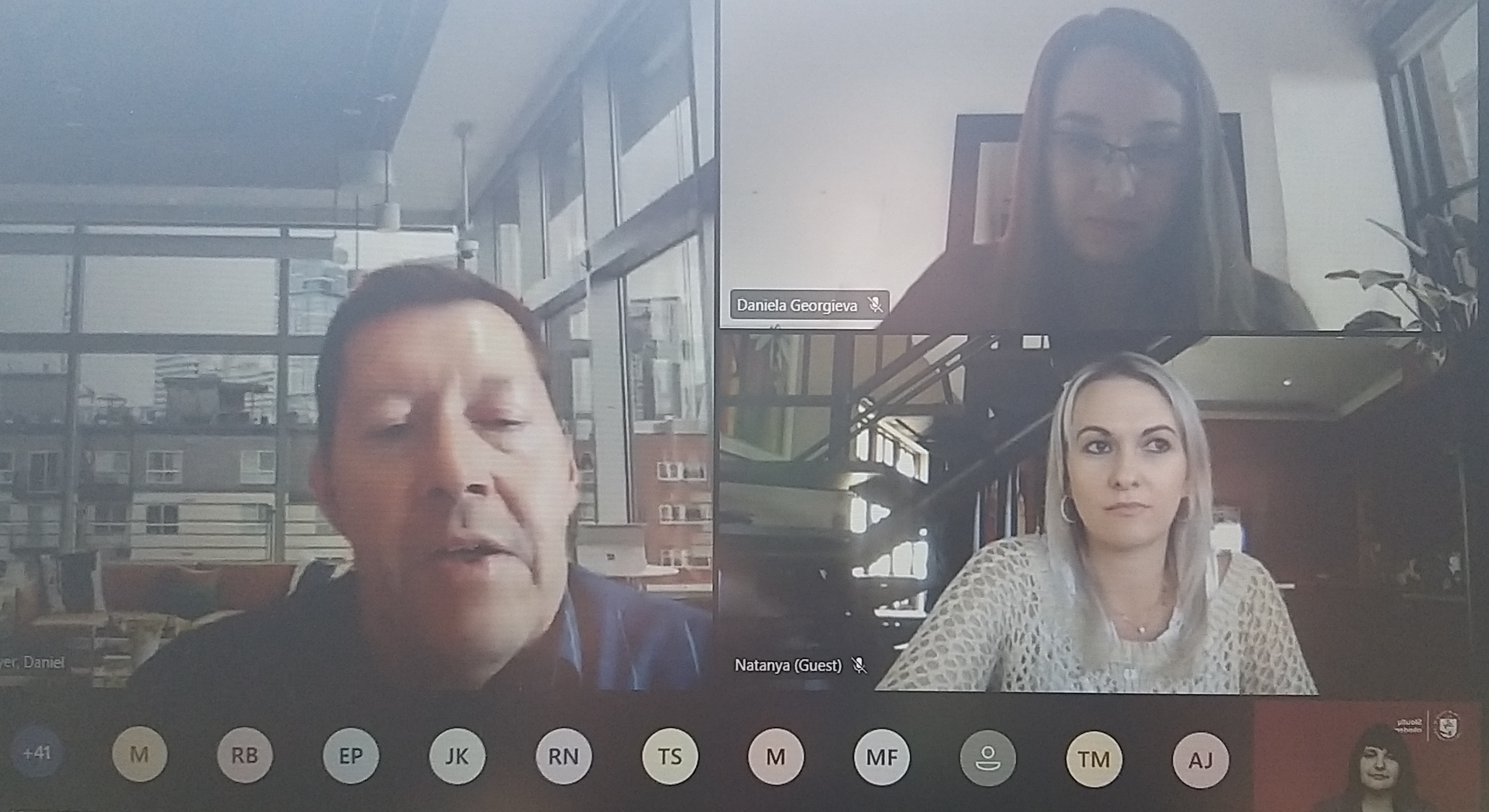
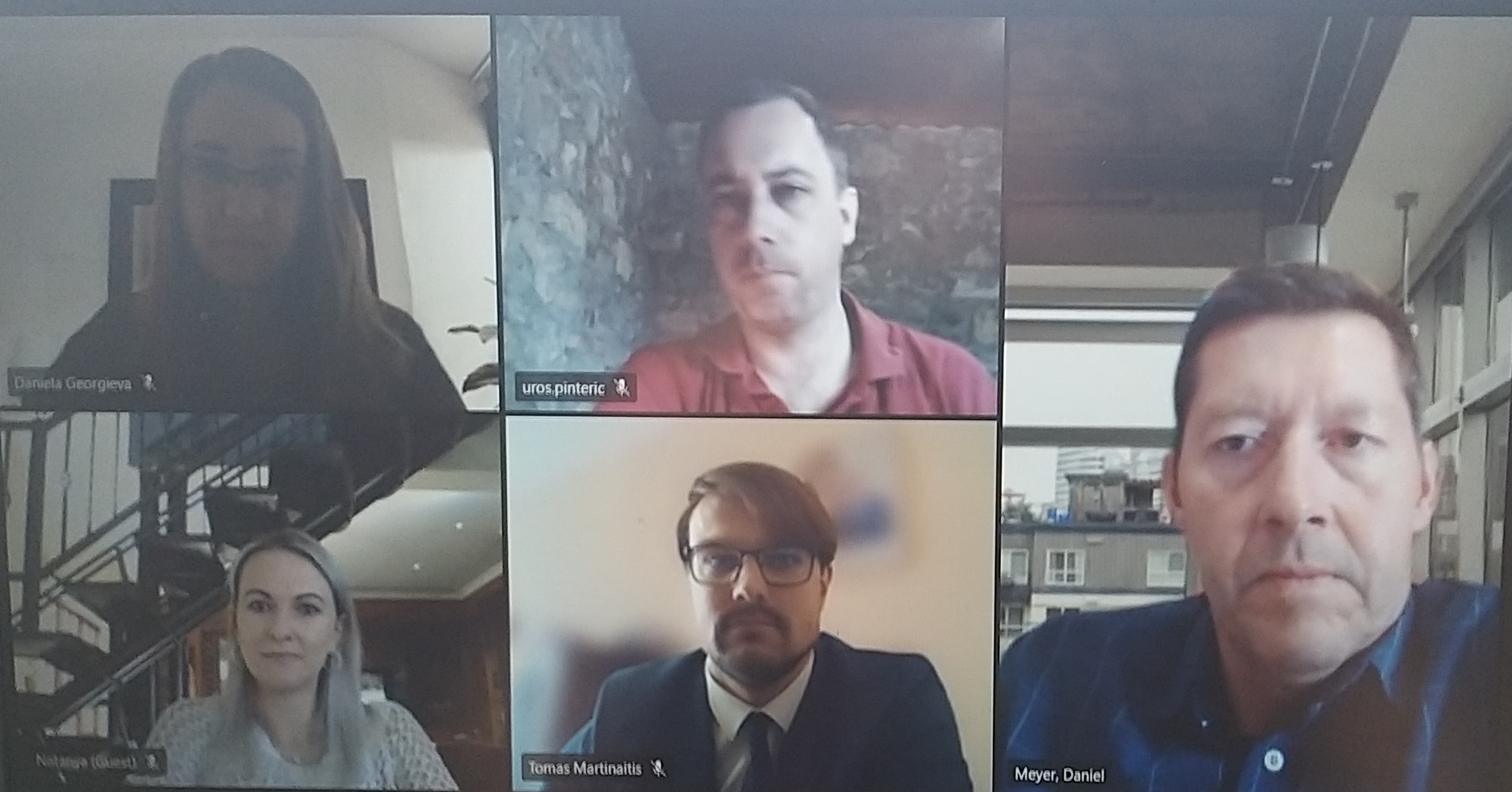
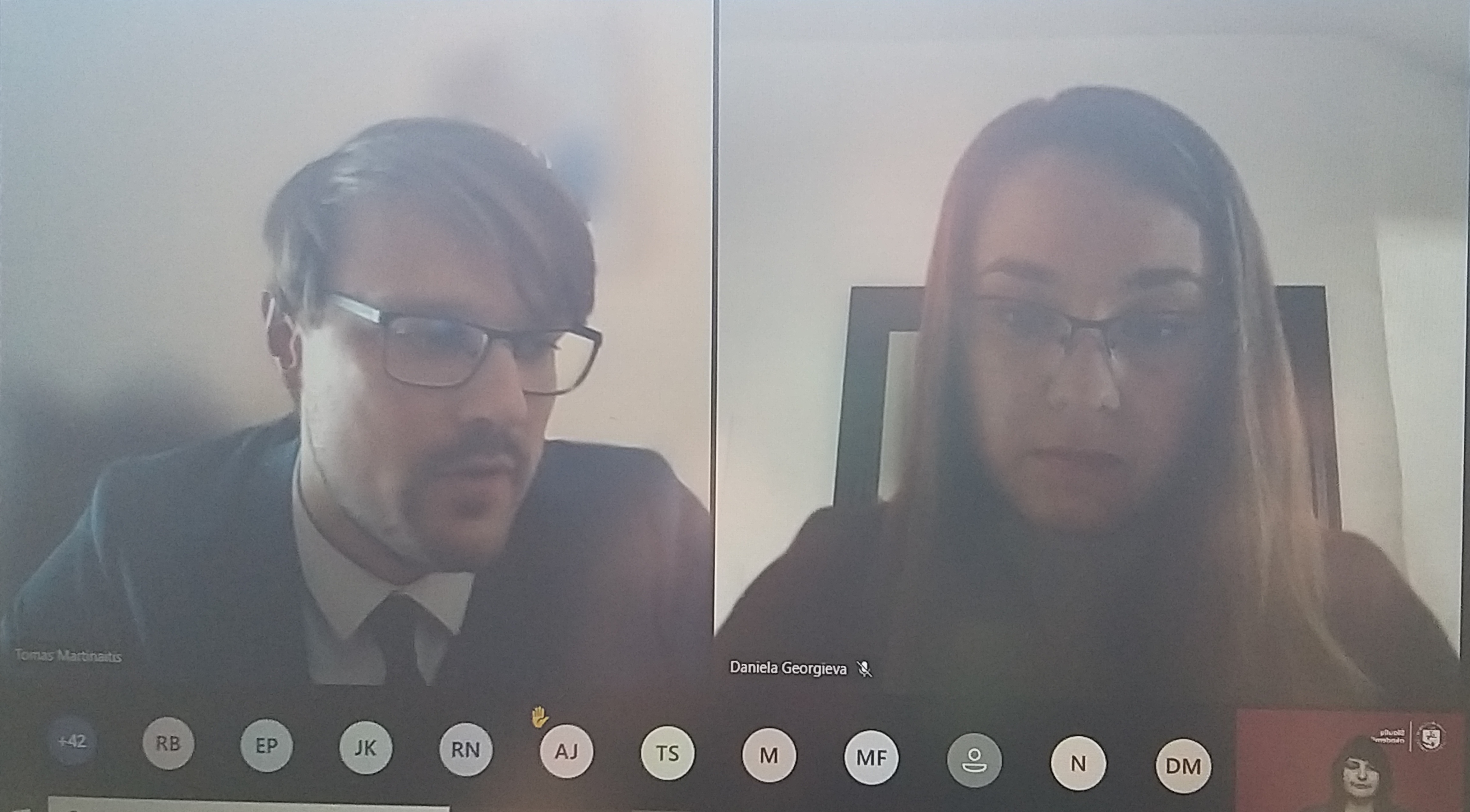
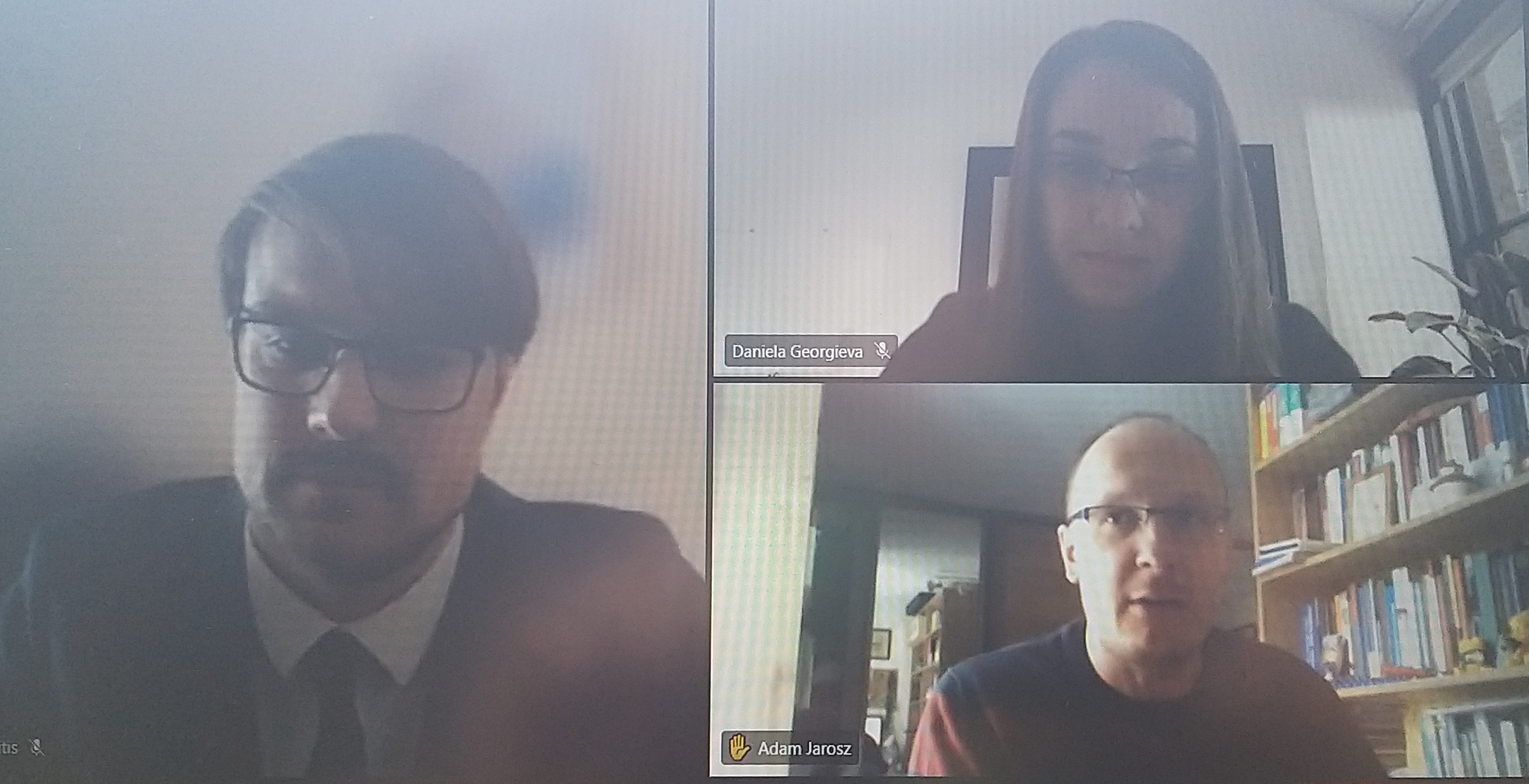
May, 2021
On the 20th of May Researchers' Excellence Network (RENET) invited to take the part virtually in the plenary session of the 10th international interdisciplinary scientific conference "The Region: History, Culture, Language", organized by Šiauliai Academy of Vilnius University.
Presentations:
|
Collaboration and Resistance During the Second World War in Latvian Social Memory Researcher Dr Mārtiņš Kaprāns (Institute of Latvian History, University of Latvia, Latvia). |
|
Polish-Latvian Instrumental OctOpus Duo Assist.Researchers Dr Ryszard Zoledziewski (Karol Lipinski Academy of Music in Wroclaw, Poland) and Dr Gleb Belyaev (Daugavpils University, Latvia). |
|
Transformations of Region Memory in Cultural Landscape Assist. Prof. Dr Jana Pecníková (Department of European Cultural Studies, Faculty of Arts, Matej Bel University in Banská Bystrica, Slovakia). |
|
The Signs of Lithuanianness in Canada: Names of National Realia Researcher Dr Regina Kvašytė (Institute of Regional Development, Vilnius University Šiauliai Academy, Lithuania). |
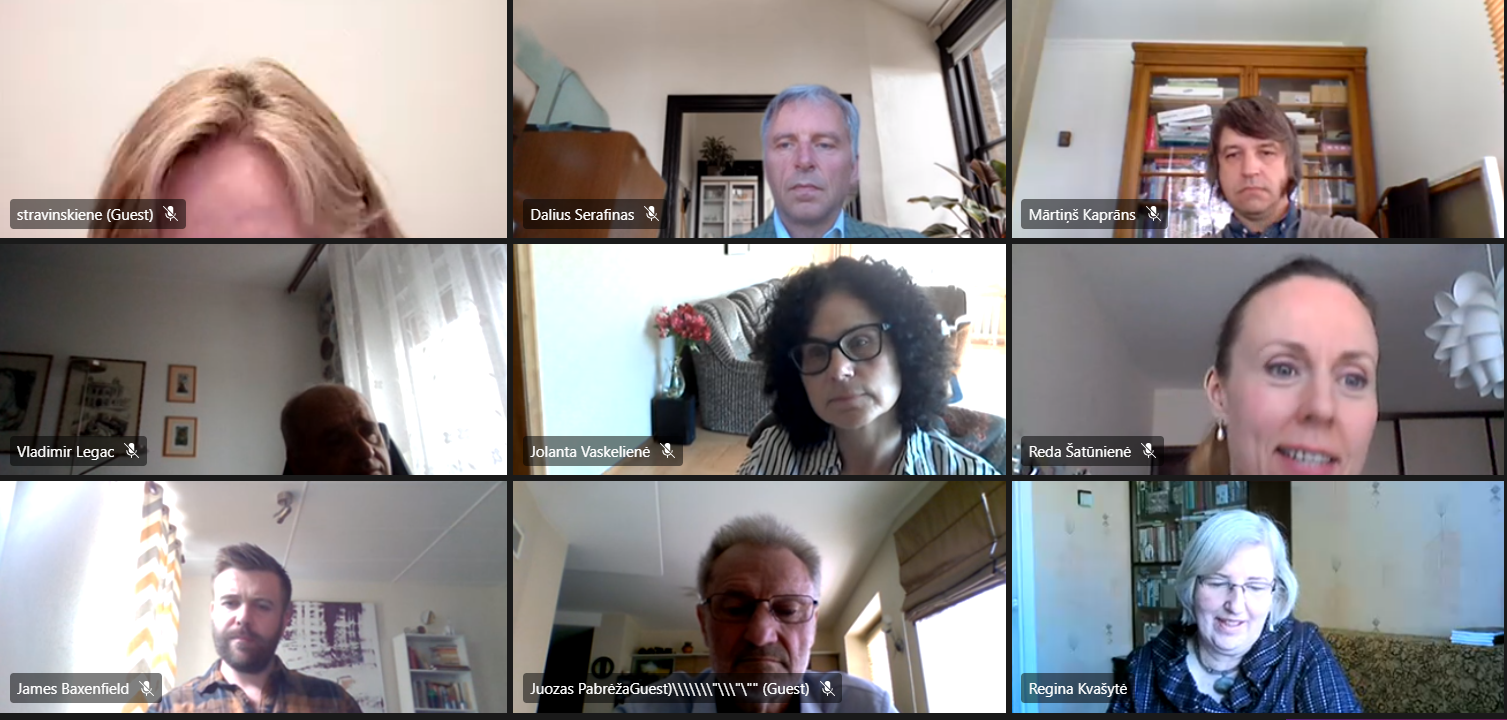
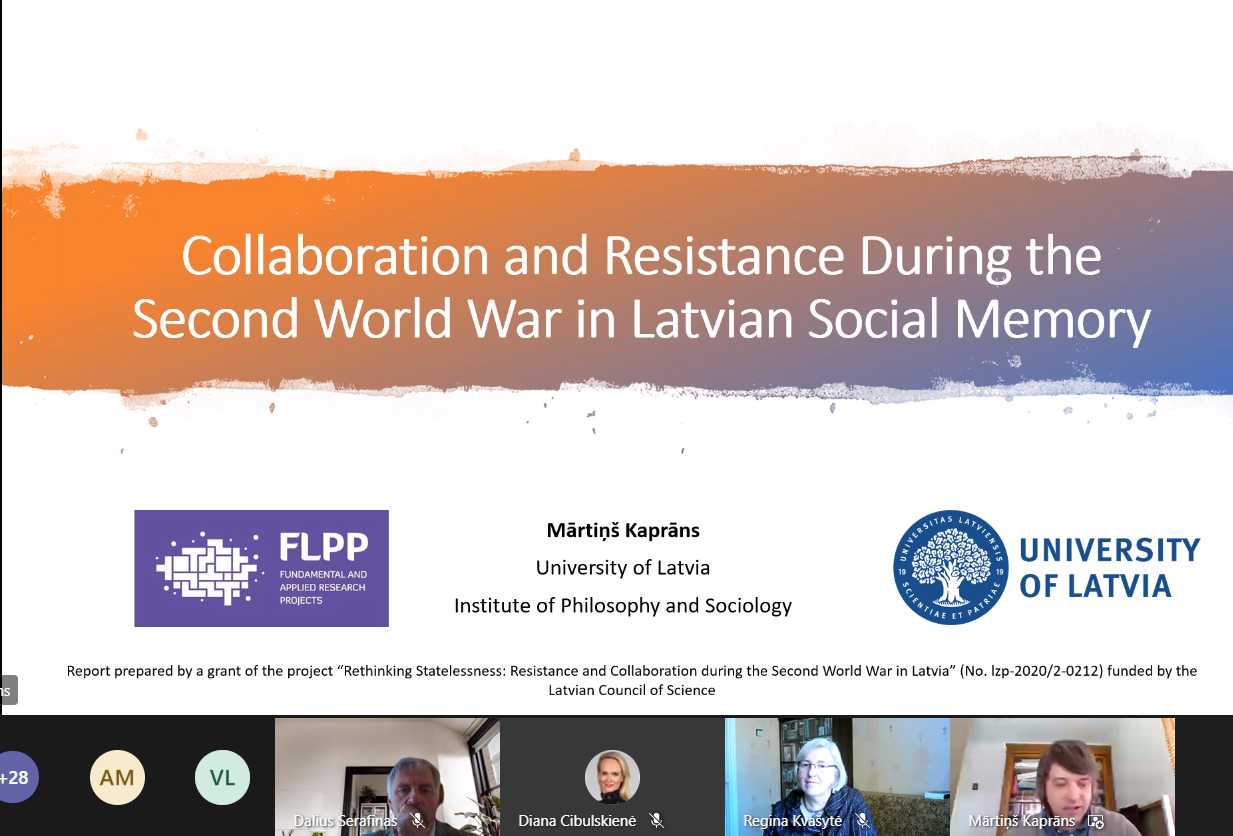
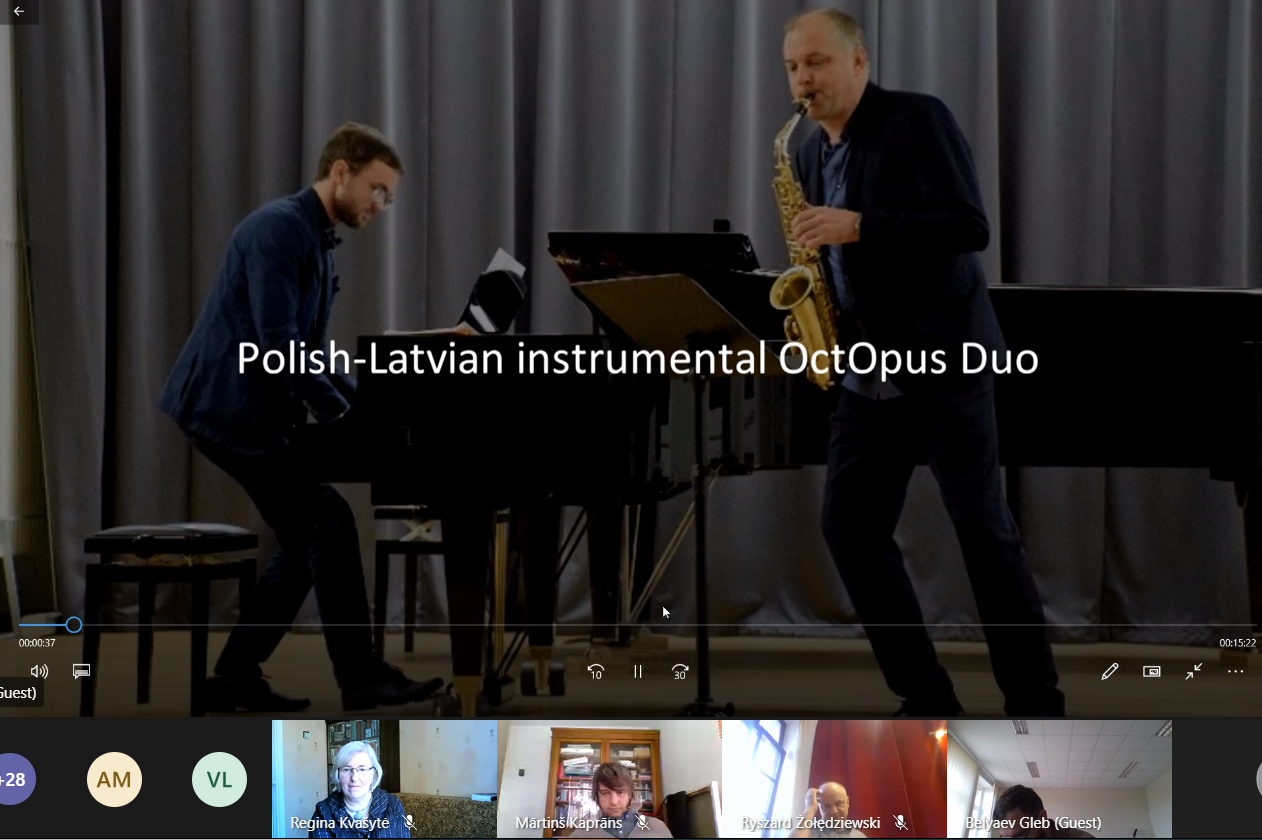
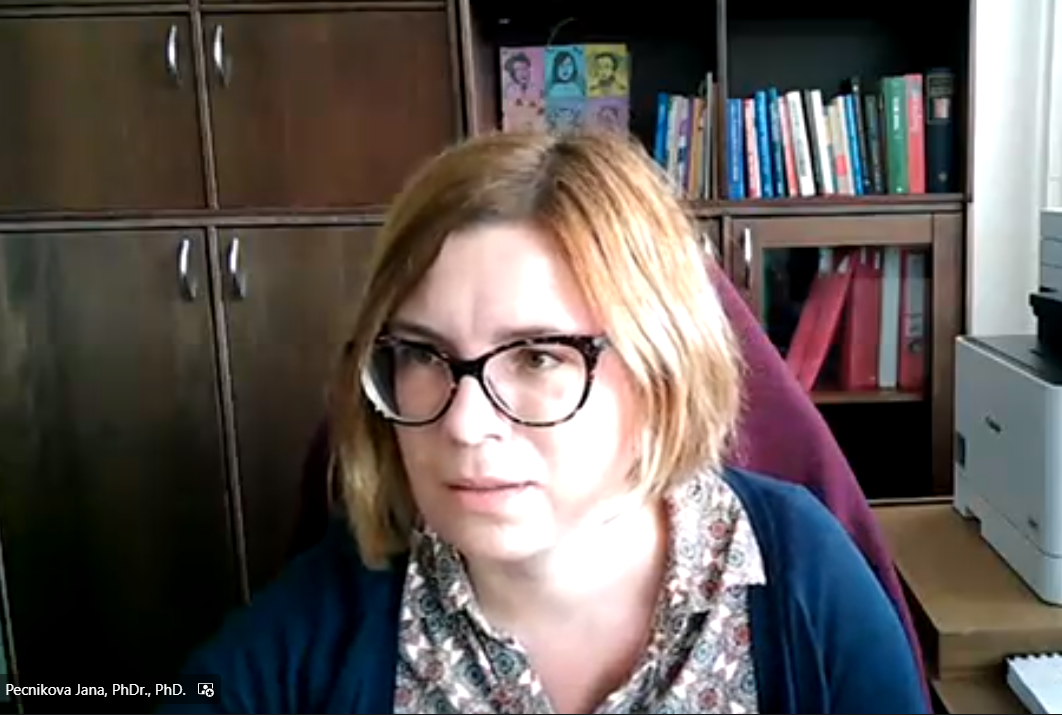
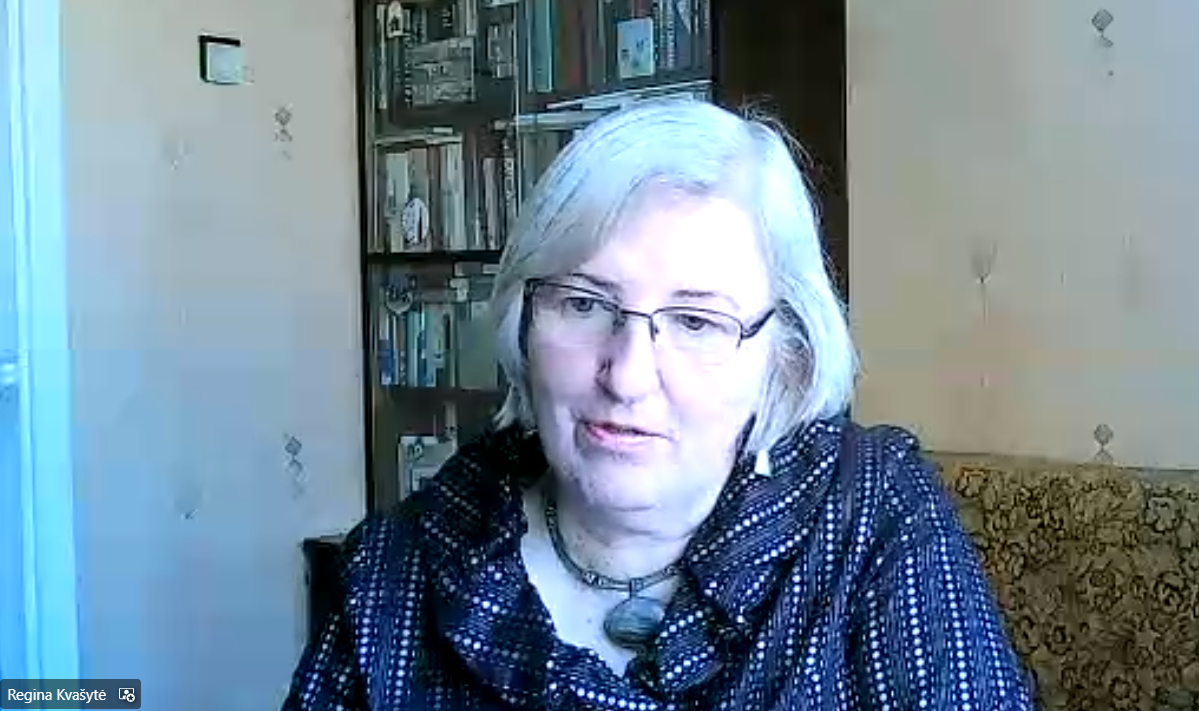
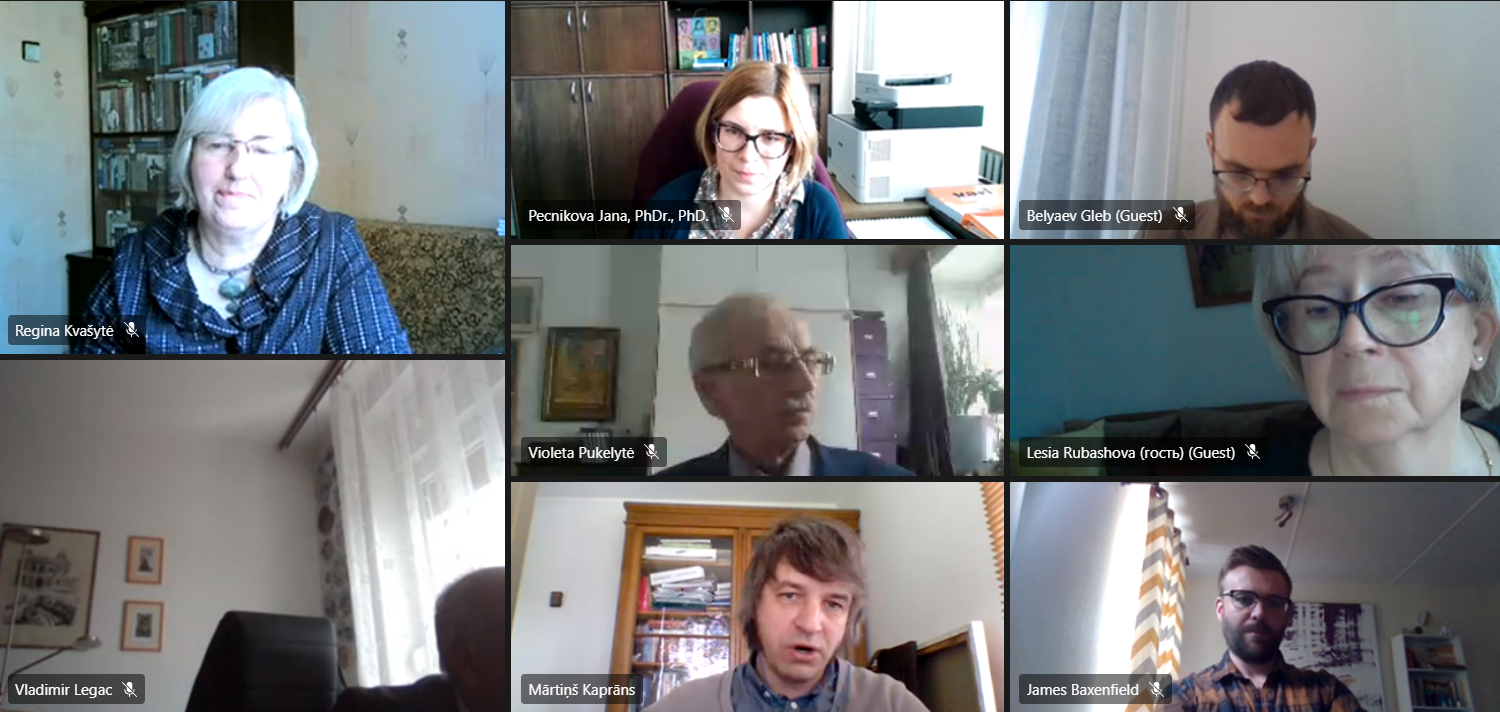
November, 2021
On the 25th of November Researchers' Excellence Network (RENET) invited to take the part virtually in the 20th International Scientific-Practical Conference “Traps of uncertainty – scenarios for a resilient region”, working group "Institutional and economic challenges for regions", organized by Šiauliai Academy of Vilnius University and partners.
Presentations in the working group:
- Prof. Dr Baiba Rivza, researcher Maiga Kruzmetra, researcher Laura Jeroscenkova (Latvia University of Life Sciences and Technologies, Latvia). Performance Changes in Economic System (case of Latvia).
- Lecturer Edith Ogbuagu (University of Benin, Nigeria). Fiscal Policy and Economic Development in Nigeria: A Case Study of the Economic Recovery and Growth Plan (ERGP).
- Senior Research Associate Xolisile Ngumbela (University of Johannesburg, South Africa). Exploring South Africa’s Food Security Situation in the Post Covid and Land Reform Struggle’s.
- Assist. Prof. Dr Adam Jarosz (SGH - Warsaw School of Economics, Poland), Assist. Prof. Dr Beata Springer (University of Zielona Góra, Poland). Regional Cycling Policy in Poland: Role in Developing Sustainable Mobility.
- Lecturer, PhD student Vilma Tubutienė (Vilnius University, Lithuania). Assessment of personnel performance as a precondition for work motivation.
- Lecturer, PhD student Mantas Pakamanis (Kaunas University of Applied Sciences, Mykolas Romeris University, The Law Office “PRUDENCE”, Lithuania). International commercial courts – an emerging alternative for resolving disputes. Can these institutions provide credible alternatives to domestic courts or arbitral tribunals for resolving international commercial disputes?
- PhD student, deputy mayor Tomas Martinaitis (Vytautas Magnus University, Akmenė district municipality. Lihuania). Reaction of Lithuanian Municipalities in the Situation of COVID-19 Pandemics.
- Assist. Prof. Dr Justyna Ziobrowska (University of Wroclaw, Poland). The Sharing Economy in a Post-Pandemic World: Opportunities and Threats.
